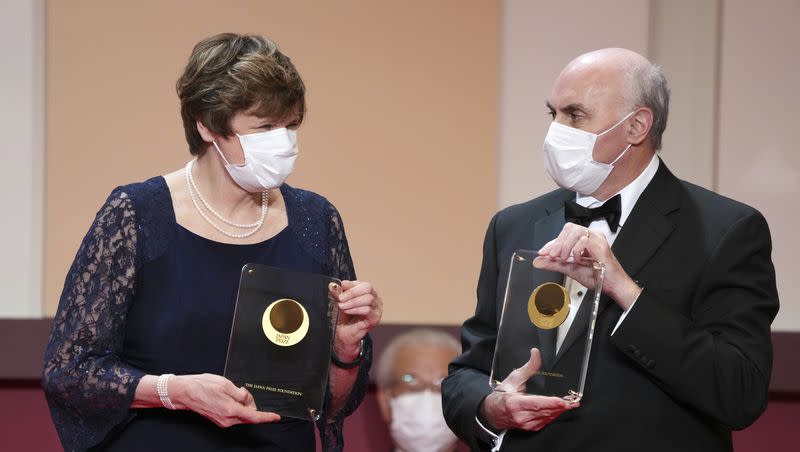Nobel Prize in medicine awarded to 2 scientists behind mRNA COVID-19 vaccines

Two scientists whose research led to the development of mRNA COVID-19 vaccines were awarded the Nobel Prize in medicine on Monday.
Katalin Karikó and Drew Weissman were recognized “for their discoveries concerning nucleoside base modifications that enabled the development of effective mRNA vaccines against COVID-19,” the Nobel Prize committee announced in a press release.
“The laureates contributed to the unprecedented rate of vaccine development during one of the greatest threats to human health in modern times,” the Nobel Prize committee said.
What are mRNA vaccines?
Karikó and Weisman discovered how mRNA could be used for vaccinations and other therapies.
Messenger RNA, also known as mRNA, vaccines give cells instructions on how to make proteins.
The mRNA COVID-19 vaccine “gives your cells instructions for how to make the S protein found on the surface of the COVID-19 virus,” according to the Mayo Clinic.
“After vaccination, your muscle cells begin making the S protein pieces and displaying them on cell surfaces. This causes your body to create antibodies.”
The Moderna and Pfizer-BioNTech COVID-19 vaccines both use mRNA.
Who is Katalin Karikó?
Karikó is a Hungarian-American biochemist whose research on mRNA led to the development of the effective COVID-19 vaccine.
She is currently a professor at the University of Pennsylvania.
Related
Karikó reacted to the news of winning the Nobel Prize by stating, “I couldn’t believe it. I was very much surprised. But I am very happy,” according to The Associated Press.
Who is Drew Weissman?
Weissman is an American physician who worked alongside Karikó in researching how mRNA vaccines react with the immune system.
Weissman is also a professor at the University of Pennsylvania.
“The future is just so incredible,” Weissman said, per AP. “We’ve been thinking for years about everything that we could do with RNA, and now it’s here.”

